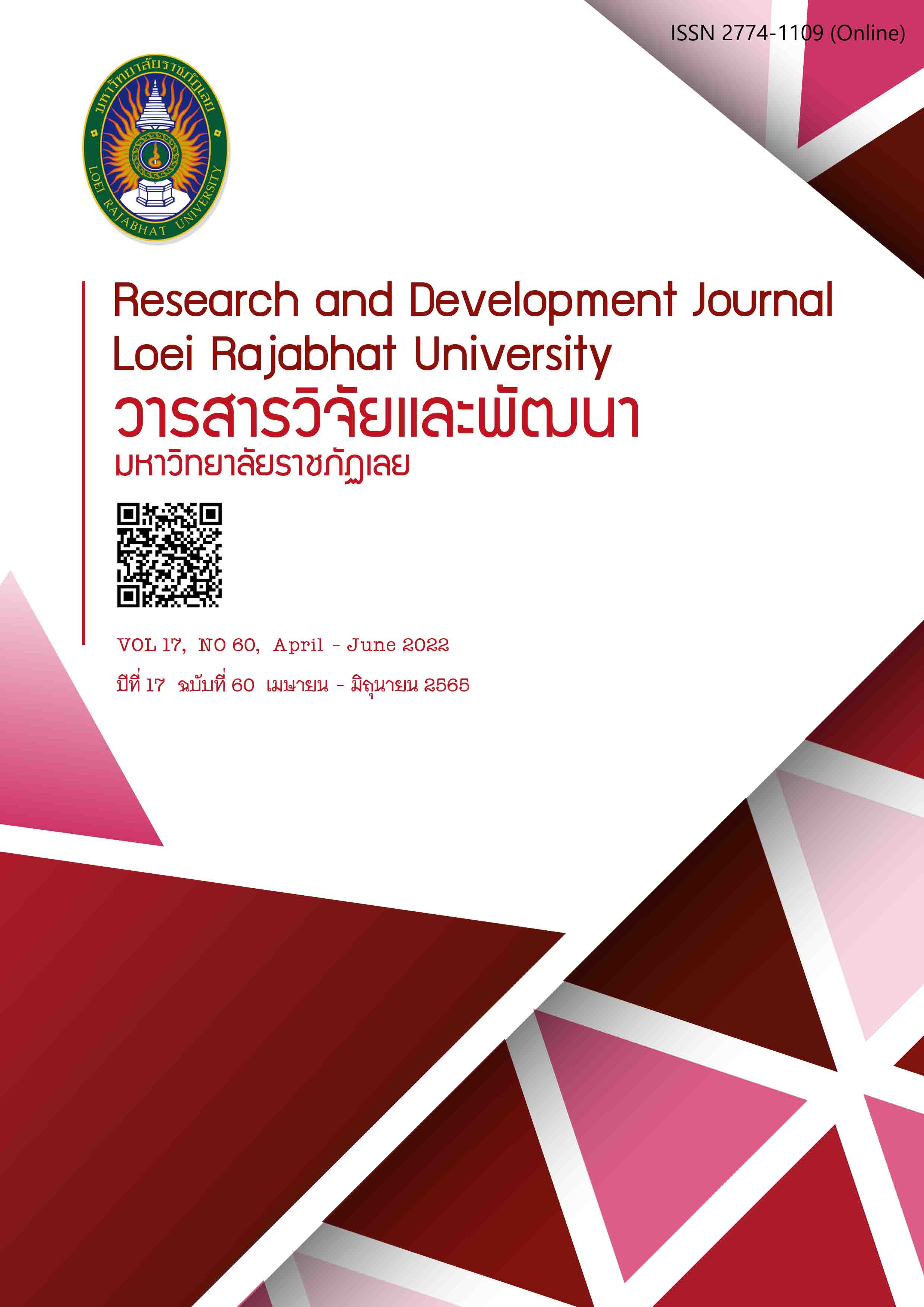Exercise of Rights and Freedoms in Public Assembly under the Law on Public Assembly
Keywords:
public assembly, right and freedom of public assemblyAbstract
This independent research applies the documentary research method. The objective of this study were: 1) to study the background, concepts, theory, and principles of public assembly, 2) to study the provisions of law relating to exercise of rights and freedoms of assembly in Thailand and Federal Republic of Germany, 3) to analyze problems of exercising rights and freedoms in public assembly under Public Assembly Act 2558 (2015), and 4) to suggest to modify or revise the provisions of law on public assembly to be more effective.
The results of the study found that, firstly, natural laws are universal above man-made laws and the constitution guarantees rights and liberties as the highest priority for government organizations and citizens to be respected and protected. Secondly Federal Republic of Germany, the acknowledgment of the right to freedom of public assembly is a fundamental right in democratic governance in the basic law. However in Thailand, the details of the legal provisions of the public assembly law facilitates the exercise of the discretion of the officials to obstruct the exercise of rights and the integrity of the public assembly. Thirdly, the right to freedom of assembly of citizens is limited by vague statutory provisions. Fourthly, the provisions of the law must be clear so that officials involved in public assembly must strictly interpret the provisions. Therefore, it is appropriate to amend the Public Assembly Act B.E. 2558 (2015), as follows: 1) definition of assembly manager, 2) Responsibilities of the assembly manager, and 3) protection of lawful banning public gatherings.
References
กระทรวงการต่างประเทศ, กรมองค์การระหว่างประเทศ. (2551, กรกฎาคม). ปฏิญญาสากลว่าด้วยสิทธิมนุษยชน. สืบค้นจาก http://humanrights.mfa.go.th/upload/pdf/udhr-th-en.pdf
กระทรวงการต่างประเทศ, กรมอาเซียน (2556, มิถุนายน). ปฏิญญาอาเซียนว่าด้วยสิทธิมนุษยชน. สืบค้นจาก https://aichr.org/wp-content/uploads/2019/02/AHRD_Booklet_FIN_13June.pdf
กรุงเทพธุรกิจ. (2559, มิถุนายน). คุก 'ขวัญชัย' 2ปี คดี'แดง-เหลือง'ปะทะกันที่หนองประจักษ์. สืบค้นจาก https://www.bangkokbiznews.com/news/704634
คณะกรรมการสิทธิมนุษยชนแห่งชาติ. (2550). กติการะหว่างประเทศว่าด้วยสิทธิพลเมืองและสิทธิทางการเมือง. กรุงเทพฯ: ห้างหุ้นส่วนจำกัด มิราเคิ้ล ครีเอชั่น อินเตอร์พริ้นท์.
ชัดชัย ทองเจริญ. (2559). ปัญหาทางกฎหมายเกี่ยวกับการตีความคำนิยามตามพระราชบัญญัติการชุมนุมสาธารณะ พ.ศ. 2558 (วิทยานิพนธ์ปริญญามหาบัณฑิต). มหาวิทยาลัยธุรกิจบัณฑิตย์, กรุงเทพฯ
นรินทร์ อิธิสาร. (2552). เสรีภาพในการชุมนุม (Versammlungsfreit) ในระบบกฎหมายเยอรมัน. เครือข่ายกฎหมายมหาชนไทย. สืบค้นจาก http://public-law.net/publaw/view.aspx?id=1326
บรรเจิด สิงคะเนติ. (2552). หลักพื้นฐานเกี่ยวกับสิทธิเสรีภาพและศักดิ์ศรีความเป็นมนุษย์ (พิมพ์ครั้งที่ 3). กรุงเทพฯ: วิญญูชน.
ปรีดี เกษมทรัพย์. (2536). ประชาธิปไตยกับชนชั้นกลาง (พิมพ์ครั้งที่ 3). กรุงเทพฯ: วิญญูชน.
ภาสันต์ เงาศุภธน. (2559). การใช้สิทธิและเสรีภาพในการชุมนุมสาธารณะตามกฎหมายการชุมนุมสาธารณะ (วิทยานิพนธ์ปริญญามหาบัณฑิต). มหาวิทยาลัยสุโขทัยธรรมาธิราช, นนทบุรี.
ราชกิจจานุเบกษา. (2558). พระราชบัญญัติการชุมนุมสาธารณะ พ.ศ. 2558. สืบค้นจาก http://www.ratchakitcha.soc.go.th/DATA/PDF/2558/A/063/19.PDF
สิทธิพร ประวัติรุ่งเรือง. (2556). หลักนิติธรรมกับสังคมไทย หลักสูตรนิติธรรมเพื่อประชาธิปไตย รุ่นที่ 1 วิทยาลัยรัฐธรรมนูญ สำนักงานศาลรัฐธรรมนูญ. สืบค้นจาก https://www.constitutionalcourt.or.th/occ_web/ewt_dl_link.php?nid=1180
หยุด แสงอุทัย. (2535). ความรู้เบื้องต้นเกี่ยวกับกฎหมายทั่วไป (พิมพ์ครั้งที่ 11). กรุงเทพฯ: ประกายพรึก.
หยุด แสงอุทัย. (2558). หลักรัฐธรรมนูญทั่วไป (พิมพ์ครั้งที่ 9). กรุงเทพฯ: วิญญูชน.
อรรถพล ใหญ่สว่าง. (2558). ศาลรัฐธรรมนูญกับการปฏิรูปการเมืองภายใต้หลักนิติธรรม: การแสดงออกทางประชาธิปไตยโดยการชุมนุมสาธารณะภายใต้รัฐธรรมนูญแห่งราชอาณาจักรไทยพุทธศักราช 2550. กรุงเทพฯ: บริษัท พี.เพลส.จำกัด.
อุดม รัฐอมฤต, นพนิธิ สุริยะ และ บรรเจิด สิงคะเนติ. (2544). การอ้างศักดิ์ศรีความเป็นมนุษย์หรือใช้สิทธิและเสรีภาพของบุคคลตามมาตรา 28. กรุงเทพฯ: สำนักงานศาลรัฐธรรมนูญ.
ไอลอว์, ฐานข้อมูลคดี. (2562, ธันวาคม). “ชื่อคดีอานนท์: ยืนเฉยๆ คดีที่หนึ่ง”. สืบค้นจาก https://freedom.ilaw.or.th/case/715
Downloads
Published
How to Cite
Issue
Section
License
Copyright (c) 2022 Research and Development Journal, Loei Rajabhat University

This work is licensed under a Creative Commons Attribution-NonCommercial-NoDerivatives 4.0 International License.
ข้อความที่ปรากฎในวารสารฉบับนี้เป็นความคิดเห็นของผู้เขียนแต่ละท่าน สถาบันวิจัยและพัฒนา มหาวิทยาลัยราชภัฏเลย และกองบรรณาธิการ ไม่จำเป็นต้องเห็นด้วยและไม่มีส่วนรับผิดชอบใดๆ
สถาบันวิจัยและพัฒนา มหาวิทยาลัยราชภัฏเลย ขอให้ผู้อ่านอ้างอิงในกรณีที่ท่านคัดลอกเนื้อหาบทความในวารสารฉบับนี้






